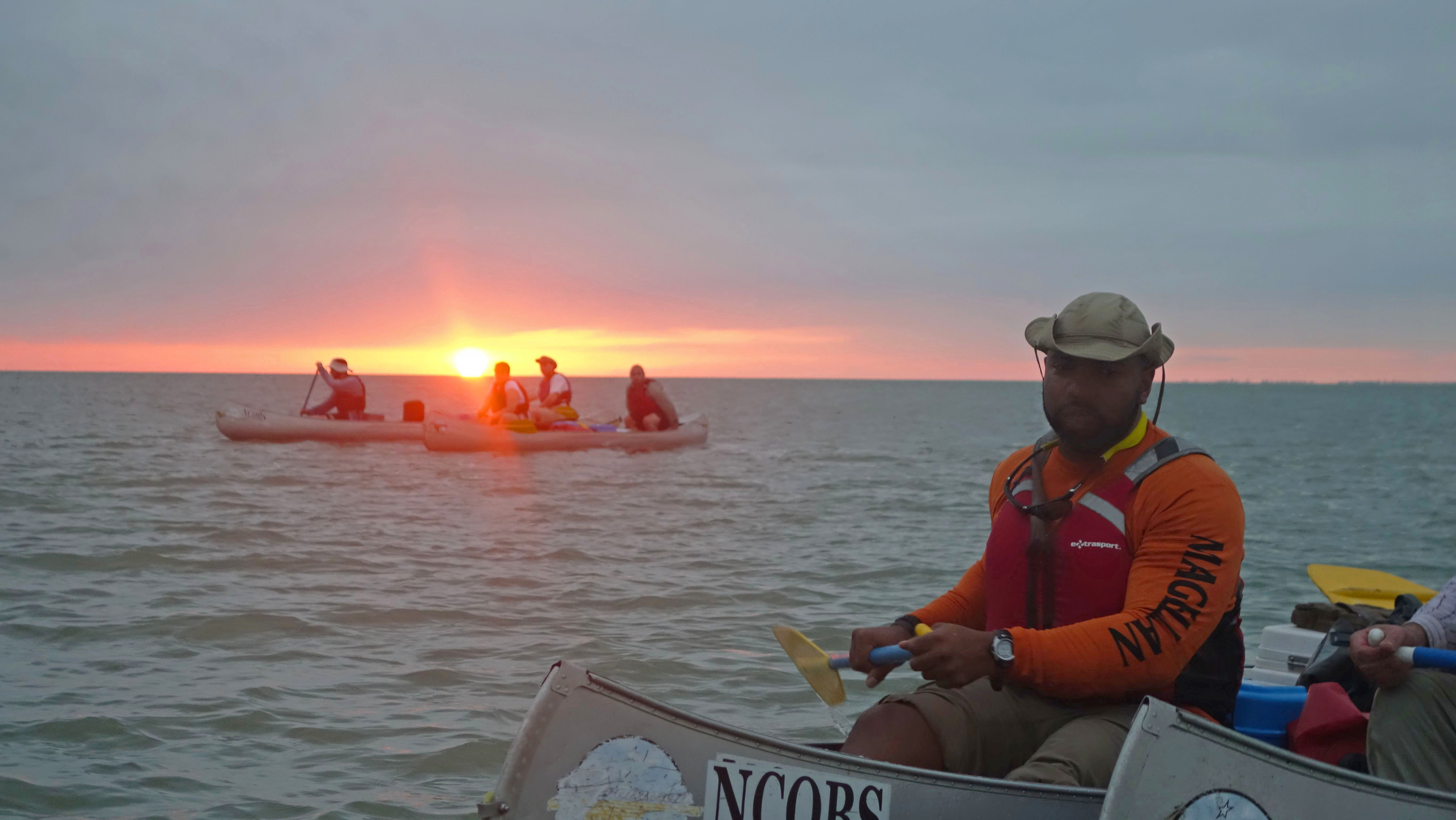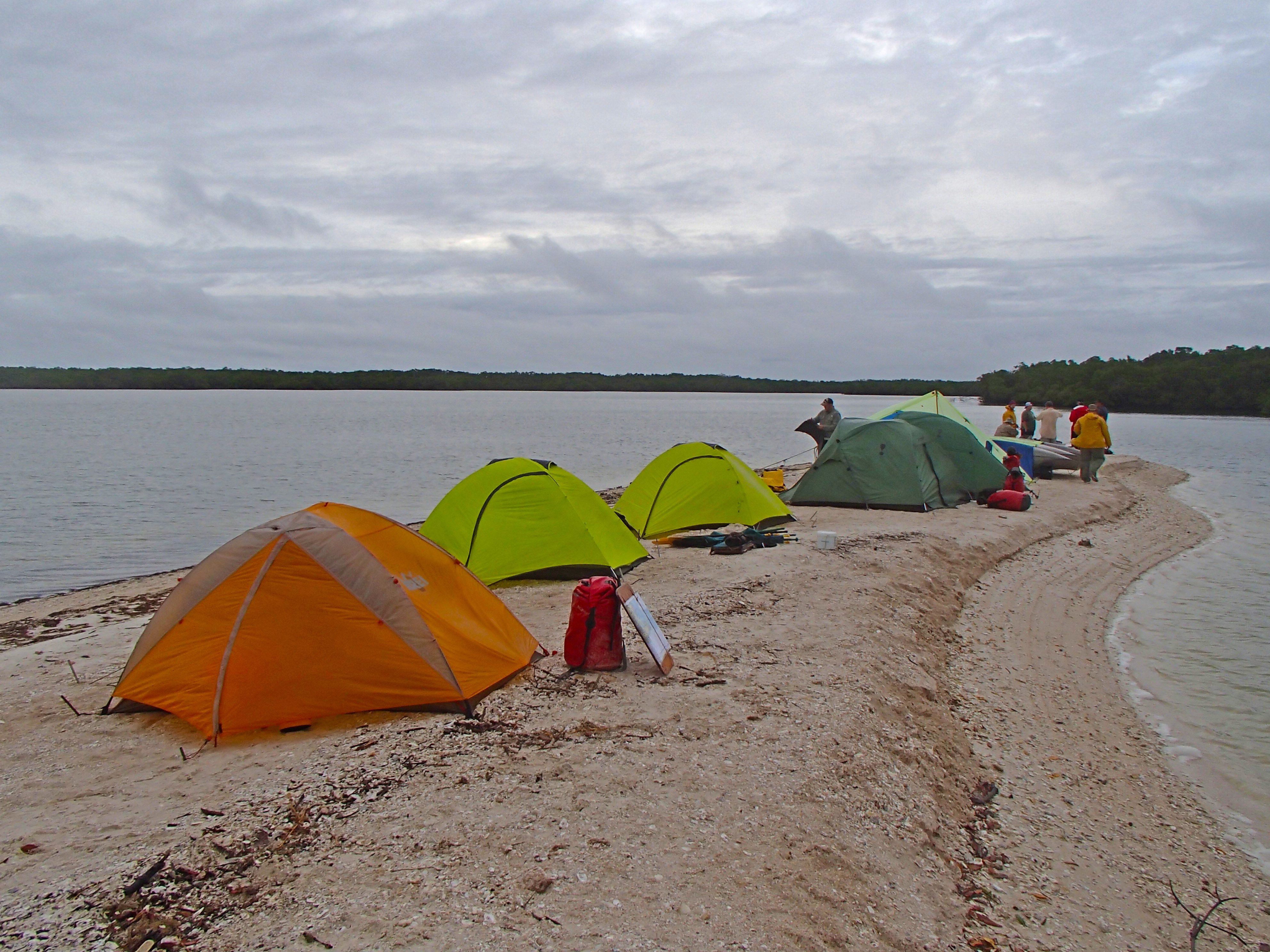Ten Thousand Islands Canoeing for Veterans

For over 30 years, Outward Bound has run wilderness expeditions specially designed for war veterans and service members. Outward Bound draws on the healing benefit of teamwork, challenge, friendship and the natural world. These courses provide a unique opportunity for self-discovery that can help veterans with their transitions back into civilian life.
TEN THOUSAND ISLANDS, FL
Participants will paddle through lush mangrove tunnels in a land of contrast: between tropic and semi-tropic, land and sea, and salt and fresh water as they learn to work together to read tide charts, explore unique ecosystems, cook and set-up camp on white sandy beaches under the stars and paddle to new areas each day. Participants will also learn about what makes the Ten Thousand Islands famous worldwide, the environmental value the area adds, and how we can better take care of it. <Click to learn more about this course area.>
CANOEING
You can expect to spend a good deal of time each day in canoes. You will be in a tandem canoe, which means there are two participants per canoe. Depending on the wind and weather, the level of difficulty will vary day to day. You and your crewmates will learn or practice:
- expedition risk assessment and management
- route planning and navigation
- paddle strokes and techniques for propulsion and steering
- canoe-based assisted rescues and self-rescues.
- canoe expedition equipment use, care and maintenance.
- how to work with your paddling partner
It will be necessary for you and your crewmates to perform a swim assessment; as well as a flip and swim assessment as practice for paddling and self-rescue. This activity is closely monitored by your instructors. It is critical for us to determine your paddling comfort as you and your crew explore the area. Even if you are a non-swimmer or weak swimmer, you will still participate in this safety assessment. All students will be wearing personal flotation devices (PFDs) during the assessment. Personal flotation devices (PFDs) are required apparel anytime students are on the water.
FINAL CHALLENGE EVENT
At the end of your course, you may participate in a final challenge event. This is an opportunity to see how much your skills have improved since you began your course.
SOLO - SELF REFLECTION
Solo typically occurs more than halfway through your course and may last up to 24 hours. Your instructors will assign each participant an individual campsite within a designated area. Your instructors will teach you procedures to follow during solo and monitor you during this experience. You will know the location of your instructors’ campsite should you need to contact them; otherwise it is essential that you remain in your designated area. If your course has an overnight solo you will have your clothing, food and water. In addition, you will have Outward Bound issued gear: including rain gear, shelter, sleeping bag, compass and whistle. You will not be physically active during solo, as solo is a time for rest, recharge and reflection. Solo is also a good time to write in the journals we provide. If you have questions or concerns, please discuss with your Student Services Representative or your instructors.
Here are some books that we encourage you to read as you plan for your course:
- The Outward Bound Wilderness First-Aid Handbook by Jeff Isaac
- Leave No Trace: A Practical Guide to the New Wilderness Ethic by Annette McGivney
- Liquid Land by Ted Levin
- Ten Thousand Islands by Randy Wayne Wright
- The Swamp by Michael Grunwald
- Stolen Water by W. Hodding Carter
While in the Everglades/Ten Thousand Islands, you may be sleeping on the beach in tents with up to 1 other participant or on camping platforms in a personal bug tent. You will also be given a ground sheet and a foam sleeping pad to place under your sleeping bag.

This is only a SAMPLE itinerary only. Adjustments will be made due to weather, programming area availability and group dynamics.
Please review the Essential Eligibility Criteria (EEC) for the "General" EEC as well as for your specific program activities, and if you have questions, reach out to your Student Services Representative.
The wilderness environments in which our expedition based programs take place are challenging, remote, and exposed. The health and safety of our students and staff are a top priority, along with the educative quality of the course experience for all participants. To achieve essential group goals, the individuals on each course must be fully capable of and committed to learning and using wilderness skills, meeting physical and social challenges, and taking care of themselves and each other.
The EEC are applied to all students on expedition-based NCOBS courses that take place in a backcountry environment. A person is eligible for admission to a course if that person meets the “General” EEC for NCOBS and the EEC for your specific program activities and program areas.
If an applicant does not meet specific criteria, NCOBS might be able to accommodate an applicant, but will not do so if it significantly alters the fundamental nature of the course activity, jeopardizes the health and safety of NCOBS students or staff, or places an undue administrative or financial burden on NCOBS.